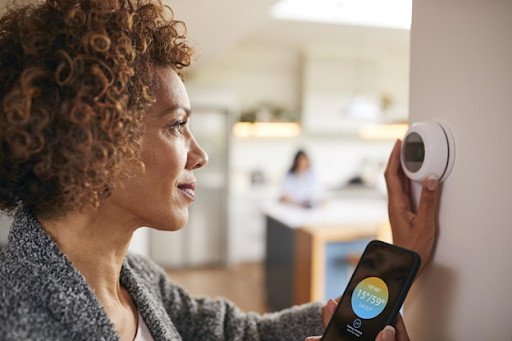During Florida’s hot, humid summer months, your air conditioner is your best friend. However, that friendship can wear thin if the unit is pushed too hard. It will struggle to keep your home cool and may even break down altogether.
Luckily, there are simple guidelines you can follow to keep your AC humming along. Check out the following tips about how to reduce stress on your HVAC during the summer so it can deliver peak performance all season long.
1. Keep Your Home Dark
Approximately 40 percent of unwanted heat in your house enters from the windows. Closing drapes, blinds, shutters, and window shades will block these scorching rays, and keep them from taxing your AC. It’s important to keep your home dark, especially from the hours of 11 a.m. to 3 p.m., when sunlight is the most intense.
2. Paint Your Home a Lighter Color
If your budget allows it, you may want to try painting your house a lighter color to beat the heat. White, beige and light gray are ideal — similar to wearing neutral-colored clothing when you’re out in the sun.
According to the EPA, the outside of dark-colored homes absorbs 70 percent to 90 percent of the sun’s energy, which can cause your air conditioner to work harder.
3. Use Fans
Give your AC a break by installing ceiling fans. You can use them during the day and keep them going at night. Even if you run them constantly, they’ll take less of a toll on your wallet than running your air conditioner round the clock. (Make sure they turn counterclockwise.) Also, consider using floor and tabletop fans.
4. Properly Set the Thermostat
It’s not advisable to adjust your thermostat to an extremely low temperature. Your AC will strain to reach that setting, and then struggle to maintain it. For instance, if it’s 91 degrees outside and you set your thermostat for 65 degrees, you’ll be considerably overburdening your system.
In Florida on a 91 degree Summer day, it would be feasible to expect your AC to cool at 75 degrees. Most systems are designed to cool a maximum of 15-20 degrees from the outside temperature.
You may also want to consider getting a smart thermostat. It allows you to set a higher temperature when you’re away and then begin cooling the house down when you’re returning. With a smart thermostat, you can also control which rooms in your house you want to cool and which you don’t.
5. Don’t Turn the AC Off
If you’re leaving the house when the temperature is blazing hot, don’t turn the air conditioner completely off. Your home will overheat, and when you turn your AC back on, it will take a long time to reestablish a cooler temperature. This creates undue stress and can lead to a breakdown. If you are leaving your home, simply set the thermostat to a higher temperature.
6. Use Fewer Appliances
Dryers, washers, and dishwashers all emit large amounts of heat and humidity. Try limiting the use of these appliances as much as possible, or restrict your usage of the dishwasher, washer, and dryer to the evening.
7. Incorporate Natural Shade Sources
Leafy shade trees (also called deciduous) are excellent solutions to sweltering weather. Plant them on the sunlit sides of your home (east and west) to counteract the sun’s hot rays. Trees are also a beautiful way to add an aesthetic touch to your landscaping.
8. Regularly Replace the Air Filter
If you want to know how to reduce stress on your HVAC during the summer, it’s important to regularly replace the air filter. Although it seems deceptively simple, an air filter is crucial to trapping dust particles and keeping your unit running efficiently.
However, if the filter gets clogged, the accumulated particles restrict airflow, forcing your AC to work harder to get cold air through. To avoid this, the air filter should be changed every 30 days. A great tip is each month you receive your power bill, go ahead and change your filters.
9. Seal Leaks
If there are leaks around your doors, windows or in your ductwork, they will allow air conditioning to seep from your home. This forces your AC to work harder to compensate, and it runs longer than it normally should.
10. Eliminate Incandescent Lights
The popularity of incandescent lights (light bulbs that produce illumination via a heated filament) is waning, so if you still have them, it’s time to switch to energy efficient fluorescent bulbs. A whopping 90 percent of energy produced by incandescent bulbs is heat, with only 10 percent actually providing light. This can contribute to a room quickly warming up and making your unit work harder to keep your home cool.
It’s important to make sure your air conditioner isn’t working too hard in the intense Florida heat. If the above tips don’t help you de-stress your unit, there may be other issues that only an expert can detect. The professionals at Progressive Air Systems can inspect your air conditioner and make the necessary repairs to ensure your system’s ideal performance and energy efficiency when you need it the most.
Call Progressive Air today so we can determine how to reduce stress on your HVAC during the summer.

